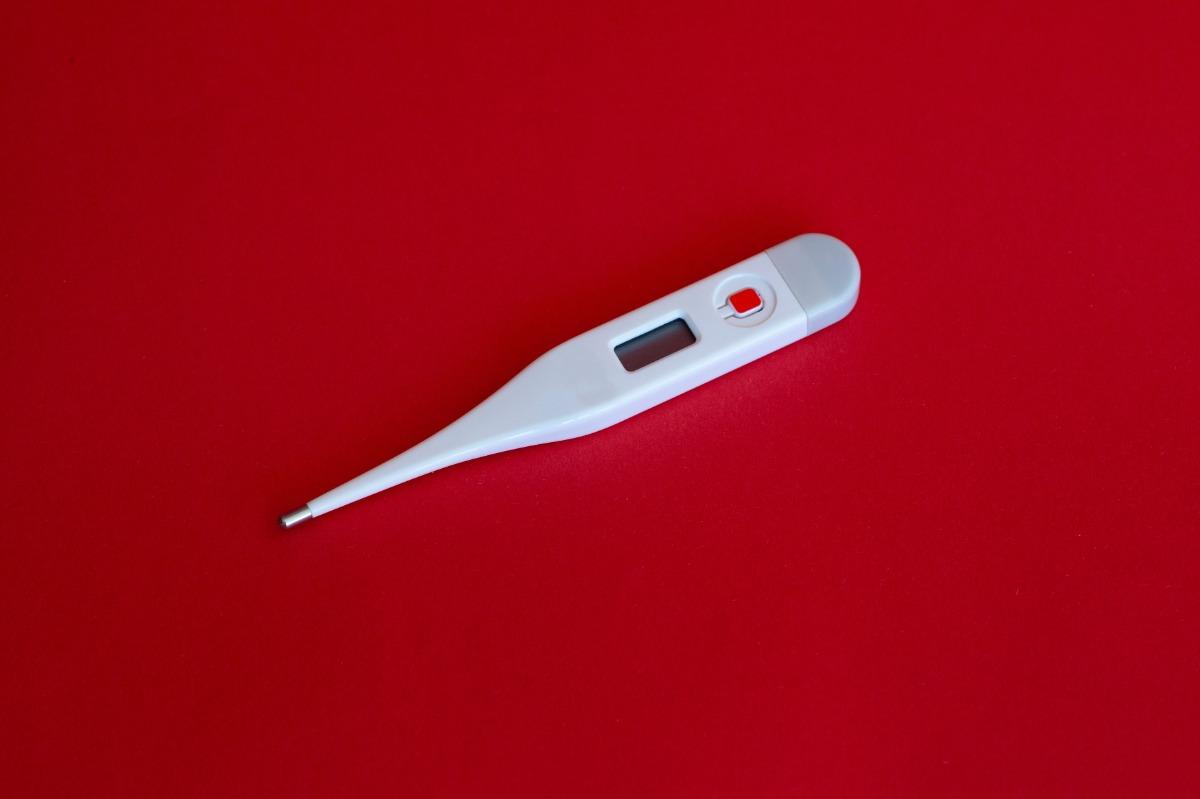
WHY Acute Illness Happens and what YOU CAN do about it
- posted: Jul. 25, 2023
Many of our patients ask us what they can do to not get acutely ill or how to improve their immune function so they don't get sick. It's important that everybody understands the importance of acute illness and what it has to do with your body's ability to heal.
So we will go over number one why it's important and then number two what are some proactive things you can do if you do get sick or proactively so you don't have to experience that acute illness?
I used to have a stammer. I've had a stammer my entire life and it was a big challenge for me. I think that's really what put me on my path to healing myself. I knew that there were tools or resources that weren't provided to me or that I didn't know at the time that could help me speak to the point where I could actually say my name without stuttering.
So I did all the things that we educate all of our patients to do.
I cut out my intolerances, worked on my self-love, detoxification, nutrition, homeopathy... all of the good stuff that we use in our practice.
And I can't say I'm 100% percent cured of my own stammer, but my communication has greatly improved, my self-love has improved, and my overall health has skyrocketed. So everything that I'm communicating with you is what I do in my own life. It's important to mention that because of these changes, I was able to heal myself.
When we're focusing on health, we're not thinking about health as an acute illness. That is just your body's reflection of what's happening with the foundation of health.
"Every acute disease is the result of the cleansing and healing effort of nature." - Henry Linlar
This powerful quote changes the perspective on what acute disease actually is.
Instead of looking at acute illness as something that you have to kill and go after and try to completely rid yourself of for the rest of your life, understand that it's actually a natural positive response of the body. When we try to interfere with this, which studies prove in and out, chronic illness develops.
Similar to exercise, how the more we exercise the more it allows the immune system to get stronger. The more we become acutely ill, it allows our immune system to get stronger. It allows for the immune system to function higher each time.
How do we change our perspective to recognize that acute illness is actually a positive response? It's about how we support that versus how we suppress that.
When you first get acutely ill, what happens? You may start to get inflammation. It could be a sore throat, it could be a headache, you start to increase in body temperature, you get a fever, you start to discharge mucus, phlegm, sweating, and you get weakness and fatigue. These are common signs of when you're first sick. Nobody likes this. It's never a good experience. However, the first thing that you're going to do when you get acutely ill is to recognize that inflammation and fever are friends - not enemies.
The father of modern medicine, Hippocrates, says "Give me fever and I can cure any disease".
1) Do Not Suppress The Fever. The worst thing we can do with acute illness is suppress the fever and suppress inflammation. Tylenol and Ibuprofen are some of the worst things that we could possibly do.
What happens when we give a child Tylenol is it lasts 4 hours, then what happens is the fever actually spikes higher because the body responds in an intelligent way. The body is like...well I'm trying to produce a fever to help heal the body. When we have a fever, it stimulates the metabolism of the body and increases the temperature. Each degree that we increase the temperature of our body's internal environment, it exponentially then allows for the bacteria and viral particles to not be environment to function properly so it doesn't necessarily kill the viral or bacterial particles, but what it does is it creates an environment where they can't thrive.
We want to let the fever and the inflammation ride because the more you suppress the fever, the worse outcome you're going to have and the longer it will take to overcome acute illness. So step one: recognize that inflammation and fever are friends, not enemies. Allow that process to take place with the understanding that there's a time and place for everything so we're going to be aware of what's happening in this situation. So when we're paying with the broad brush and health it's like well hey if a child has a fever of 106 or 107 that could potentially lead to brain damage. So of course we're going to take precautions here.
Is there a time for pharmaceuticals? Yes, there is. Something to keep in mind for yourself and if you have kids, if the fever is over 105 and if the child is lethargic, not responding, and if the child or even yourself is not sweating. Those are 3 major red flags where pharmaceutical intervention has its place. This is not that common in my experience.
The second most important part is something that most people haven't heard of or talked about. We look at every culture out there and even look at animals. What happens when your cat or dog is sick? I've seen some owners literally try to force-feed their animals when they're sick, but animals intuitively know when they're sick that they shouldn't and don't want to eat when you force them to.
2) Fasting. This allows our immune system, which really is located in our digestive tract, to function at a higher capacity and to fight the infection internally within ourselves. The reason your immune system is located in your digestive tract is that it's keeping the outside world (also known as the food you eat) away from your internal organs. When you don't eat, it allows for your immune system to internally fight the infection within your cells rather than focusing on the food you're digesting.
It is also important to fast because the majority of your energy throughout the day is spent digesting, absorbing, assimilating, and shipping out the food that you eat. So again you're giving your body this capacity and this extra energy to fight the infection.
3) Avoid Sugar & Eat Easy to Digest Foods! When you're sick, do not consume sugar, especially junk foods, ice cream, sweets, chocolates, etc. If you're hungry, I recommend opting for easily digestible foods like chicken noodle soup, bone broth, and stews, and drinking lots of water.
Only when we're actually hungry and need to eat, our body will communicate with us. You want to make sure to avoid foods that are difficult to digest such as red meat, raw salads, leafy greens, animal proteins in general, and animal fats. These foods are naturally hard to digest, so it's going to take longer for your body to digest them. Bone broth is going to help heal the digestive tract and provides specific amino acids to allow the immune system to function at its highest capacity.
4) Warming Socks! One of my favorite things because of the profound effects it has and because of the crazy name is this is an old hydrotherapy or old therapeutic that has been around our community for hundreds of years. In my experience, those types of therapies are usually the things that work the best. So warming socks is one of the best things you can do. It basically helps to reflexively clear any pressure, phlegm, and congestion from your neck up from your collarbone. If you have a sore throat, migraine, sinus congestion, coughing, etc. this is a great treatment to do.
It's very easy. You first soak your feet in a warm bathtub, and in the meantime, you have two different pairs of socks, one pair of cotton socks, and one pair of wool socks. You get a bowl and put ice in there. You fill it with water and allow the cotton socks to soak in the water while your feet are in the tub for about five minutes. Let your feet soak in the tub and then dry your feet off. Your feet are gonna be warm at that point. You wring out the cotton socks that have been in the ice-cold water and put them on. Then, put on the wool socks over your cold cotton socks and go to bed. It is very easy and it helps drain all of the congestion within your upper airways. It's one of the easiest treatments you can do.
5) Specific Supplements & Foods All Year Round. We have a FullScript account if you want to order supplements. Overall, specific supplements and foods are going to give your body the nutrients that it needs for your immune system to function at a high level. That way, the composition of your blood and lymph can be in the best-case scenario.
Thymex helps support your thymus and immune gland
Cod liver oil has good fat-soluble vitamins
Vitamin C is good for your immune system
Some minerals our body needs include zinc, selenium, and manganese, for our immune system
Taking vitamins and minerals specific for immune support from November until about March / April might be something to think about implementing. These will give your immune system the necessary building blocks that you need to thrive.
Foods that I would highly recommend because they're high in zinc and selenium, which are depleted within our soils, include oysters, brazil nuts, beef, lamb, fish, eggs, kefir, and avocado.
Overall, these are traditional foods that our ancestors inherently ate. When they ate these foods, they provided their bodies with the building blocks that their immune system needed to thrive.
6) Eliminate with the Right Tools. What can we do to support our channels or organs of elimination? Here are all the ways that we can eliminate toxins from the body.
Neti pot to drain your sinuses. It's amazing to help your sinuses drain the mucus that has built up.
Steam inhalation you can do in your shower and you can do it over a pot again to help your lungs and to help your sinuses properly drain.
Sauna is always great right because we're going to help our body to sweat and we're going to increase the temperature, increase the metabolism of our body allowing us to sweat it out
Enemas clear our digestive tract of any potential food that's in there to allow our immune system to focus on the infection rather than digesting the food
7) Vitality. We want to make sure that our perspective is in a good place, and that we understand that acute illness is a positive thing.
Some other important things to keep in mind are sleeping, breathing, movement, and sunlight. It's important to not be sitting in our homes, blasting ourselves with our phone and WiFi while we're only watching TV, not breathing properly, and eating a whole bunch of food.
Take time to rest and recover and try to realize and recognize what our bodies are trying to communicate with us.
When you're acutely ill, you want to be aware of all these things so that your body can be in the position to heal to the highest degree.

